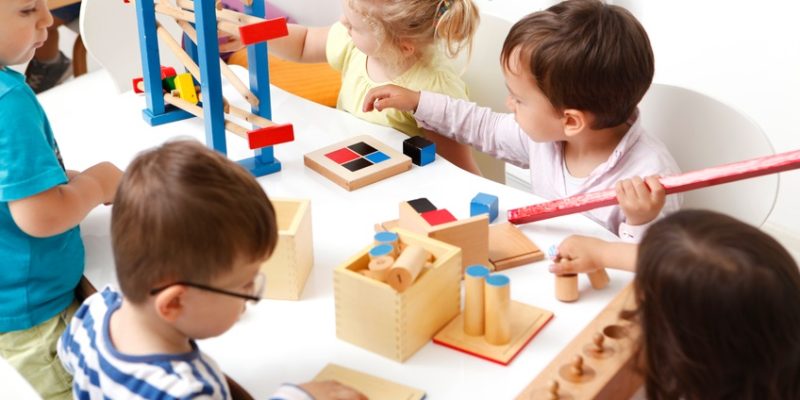
When we hear the term “child’s play” the connotation is something that’s easy or trivial. Certainly, play can be easy, it comes to us naturally, and everyone enjoys it, but we are now learning that play is far from trivial, it is in fact, a critical part of our development into healthy adult human beings. Studies by The University of Western Australia showed that insufficient physical activity, e.g. play, was associated with poorer physical and mental health. In order for our children to develop to their fullest potential it is incumbent on us to provide them with ample time and opportunities to express themselves through free play.
The value of play is especially important during early learning, comprising the period in your child’s development beginning around six months old and continuing to six years old. It has become increasingly apparent that fun and games provide much more than just joy, they are the key to helping children learn to survive and thrive through the difficult times they will face as they grow toward adulthood. Young children need chances to exercise some control and choice instead of always being herded into structured activities. The freedom to play without restrictions (other than common sense and safety, of course!) is a liberating experience that inspires confidence and curiosity.
Here are some things to consider:
- Play is a form of learning. The value of play should not be underestimated. During their play, children develop-
– Physical abilities such as balance and hand-eye coordination.
-Cognitive skills like cause and effect, counting, and deductive reasoning.
-Increased vocabulary from learning new words associated with toys and activities.
-Social skills like cooperation, teamwork, and helping others.
- Play is healthy, helping children grow strong and develop their bodies through proper exercise. Games like tag, hide and seek, and kick the can are essential to counteract all the time spent in front of a screen in today’s tech-drenched world.
- Play reduces stress by helping your children grow emotionally. The joy experienced whilst playing relieves anxiety and stress.
- Play is more complex than we previously thought. There are a wide variety of types of play like sociodramatic, functional, symbolic, games with rules, and many more! All of these have profound effects on a child’s socialization, physical health, and sense of well-being.
- Play is necessary to explore the natural world, and ample time must be given to children to go outside, and within safe boundaries, to roam and explore. Establishing ‘secret’ hide-outs in the woods, building sandcastles on the beach, making snowmen in the winter, along with just plain old running around are crucial to children’s development, imbuing them with a love for the natural world based on an understanding that can only come through directly experiencing it.
Early childhood education that focuses solely on academics is missing out on all the wonderful opportunities for growth and learning that playtime offers. Play gives children the hands-on chance to understand themselves and their world.








